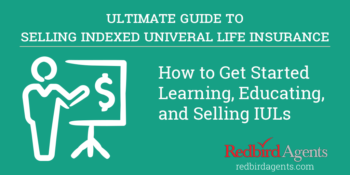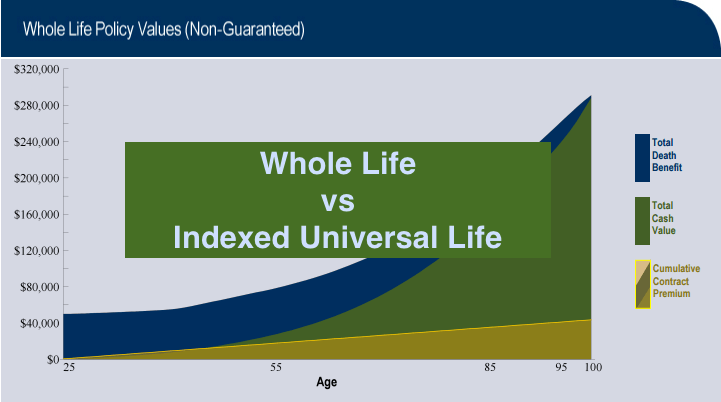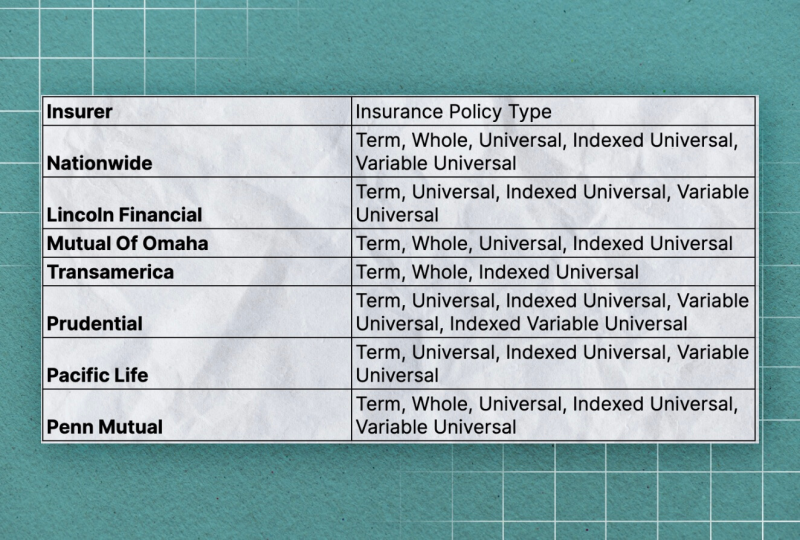All Categories
Featured
Table of Contents
1), commonly in an attempt to defeat their classification standards. This is a straw male disagreement, and one IUL people enjoy to make. Do they compare the IUL to something like the Vanguard Total Securities Market Fund Admiral Shares with no load, an expense ratio (ER) of 5 basis factors, a turn over ratio of 4.3%, and an extraordinary tax-efficient record of circulations? No, they compare it to some awful proactively managed fund with an 8% load, a 2% ER, an 80% turnover proportion, and a horrible document of temporary resources gain distributions.
Shared funds frequently make yearly taxed circulations to fund owners, even when the worth of their fund has decreased in worth. Shared funds not only call for income coverage (and the resulting yearly taxes) when the shared fund is going up in worth, yet can also impose earnings taxes in a year when the fund has actually dropped in value.
You can tax-manage the fund, harvesting losses and gains in order to decrease taxed circulations to the financiers, but that isn't somehow going to change the reported return of the fund. The ownership of common funds might require the shared fund proprietor to pay projected taxes (universal life vs whole life which is better).

IULs are simple to position to ensure that, at the proprietor's fatality, the beneficiary is not subject to either earnings or estate taxes. The exact same tax obligation decrease strategies do not function nearly also with shared funds. There are countless, usually costly, tax traps connected with the timed purchasing and selling of mutual fund shares, traps that do not use to indexed life insurance policy.
Chances aren't really high that you're going to go through the AMT because of your shared fund circulations if you aren't without them. The remainder of this one is half-truths at ideal. For circumstances, while it holds true that there is no income tax obligation due to your successors when they acquire the earnings of your IUL plan, it is additionally real that there is no earnings tax because of your successors when they acquire a mutual fund in a taxed account from you.
Iul Calculator
The federal estate tax obligation exemption limit is over $10 Million for a pair, and expanding annually with inflation. It's a non-issue for the vast bulk of physicians, much less the remainder of America. There are better ways to avoid estate tax issues than buying financial investments with reduced returns. Common funds might cause revenue taxes of Social Security advantages.

The growth within the IUL is tax-deferred and might be taken as tax cost-free income through loans. The policy proprietor (vs. the shared fund supervisor) is in control of his/her reportable earnings, thus allowing them to decrease or perhaps get rid of the tax of their Social Safety advantages. This set is great.
Right here's an additional minimal issue. It holds true if you purchase a common fund for state $10 per share right before the distribution day, and it distributes a $0.50 circulation, you are after that mosting likely to owe tax obligations (probably 7-10 cents per share) regardless of the fact that you have not yet had any kind of gains.
But in the long run, it's actually concerning the after-tax return, not just how much you pay in tax obligations. You are going to pay even more in tax obligations by utilizing a taxed account than if you acquire life insurance policy. Yet you're also possibly going to have more money after paying those tax obligations. The record-keeping needs for possessing common funds are substantially more intricate.
With an IUL, one's documents are maintained by the insurer, copies of annual statements are sent by mail to the proprietor, and circulations (if any type of) are amounted to and reported at year end. This one is likewise kind of silly. Of course you should maintain your tax documents in situation of an audit.
What Is Accumulation Value On Life Insurance
Rarely a factor to buy life insurance coverage. Common funds are typically component of a decedent's probated estate.
On top of that, they are subject to the delays and expenses of probate. The profits of the IUL plan, on the other hand, is constantly a non-probate distribution that passes outside of probate straight to one's called beneficiaries, and is for that reason not subject to one's posthumous creditors, undesirable public disclosure, or comparable hold-ups and expenses.
Medicaid incompetency and lifetime earnings. An IUL can offer their owners with a stream of revenue for their whole life time, no matter of exactly how lengthy they live.

This is useful when arranging one's affairs, and transforming properties to revenue prior to a nursing home arrest. Shared funds can not be converted in a comparable manner, and are often taken into consideration countable Medicaid possessions. This is another stupid one promoting that poor individuals (you know, the ones that require Medicaid, a federal government program for the poor, to pay for their nursing home) must utilize IUL as opposed to shared funds.
Iul Training
And life insurance policy looks terrible when compared relatively against a retirement account. Second, people that have cash to acquire IUL over and beyond their retirement accounts are going to have to be horrible at managing money in order to ever before certify for Medicaid to pay for their retirement home expenses.
Chronic and incurable health problem biker. All policies will certainly enable a proprietor's easy accessibility to cash money from their plan, typically forgoing any kind of surrender fines when such individuals endure a serious illness, need at-home care, or become restricted to a nursing home. Common funds do not supply a similar waiver when contingent deferred sales charges still relate to a mutual fund account whose owner needs to offer some shares to fund the expenses of such a remain.
Www Iul
You obtain to pay more for that benefit (rider) with an insurance plan. Indexed global life insurance policy provides fatality benefits to the recipients of the IUL owners, and neither the owner nor the recipient can ever lose cash due to a down market.
I absolutely don't need one after I reach financial independence. Do I want one? On standard, a purchaser of life insurance coverage pays for the real expense of the life insurance benefit, plus the expenses of the policy, plus the revenues of the insurance policy company.
Universal Life Surrender Value
I'm not completely sure why Mr. Morais tossed in the entire "you can't shed cash" again right here as it was covered fairly well in # 1. He simply wished to repeat the best selling point for these points I mean. Again, you don't shed nominal bucks, however you can shed actual bucks, in addition to face significant possibility expense because of reduced returns.

An indexed global life insurance coverage policy proprietor might exchange their policy for a totally different plan without activating revenue taxes. A shared fund owner can not relocate funds from one shared fund firm to one more without selling his shares at the previous (therefore activating a taxable event), and redeeming brand-new shares at the latter, usually based on sales charges at both.
While it is true that you can trade one insurance coverage for one more, the reason that individuals do this is that the very first one is such a terrible plan that even after buying a brand-new one and experiencing the early, negative return years, you'll still appear ahead. If they were marketed the appropriate policy the very first time, they should not have any type of wish to ever before exchange it and undergo the early, adverse return years once again.
Table of Contents
Latest Posts
Universal Life Quotes
Iul Good Or Bad
North American Universal Life Insurance
More
Latest Posts
Universal Life Quotes
Iul Good Or Bad
North American Universal Life Insurance